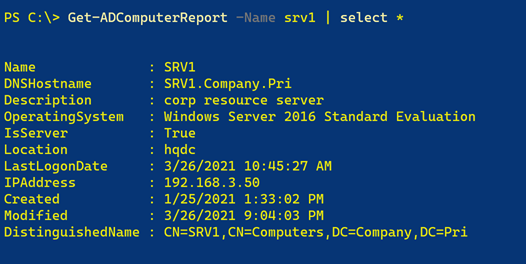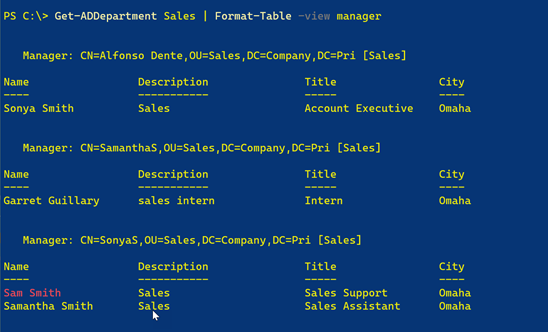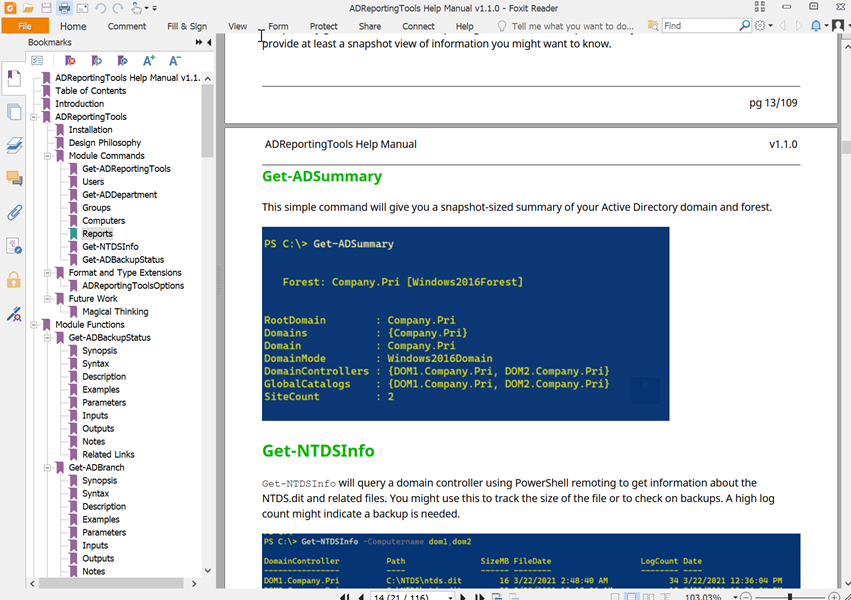Over the weekend, I published the 1.0 version of the ADReportingTools module to the PowerShell Gallery. I first wrote about this module a few weeks ago. I've made a number of changes since then and felt the module was ready for an official release. I'm continuing to add new features so you'll want to keep an eye on the PowerShell Gallery for updates. Here are a few highlights of the 1.0 release.
ManageEngine ADManager Plus - Download Free Trial
Exclusive offer on ADManager Plus for US and UK regions. Claim now!
Get-ADComputerReport
I added a command to get computer account information. You can get all computers. If you are running in a PowerShell console, domain controllers and member servers will be highlighted with an ANSI sequence.

Or you can filter between Server or Desktop. The command uses a default format view, but there is other information you can use.

Unfortunately, even though I added the command I forgot to write the help file. That will be coming in v1.2.0.
Get-NTDSInfo
The module includes a few commands related to Active Directory backups. One command is Get-NTDSInfo. This uses PowerShell remoting to get information about the ntds.dit file and edb log files on a domain controller.

The LogCount is the number of temp edb log files. I high number might indicate you are overdue for a backup. You can also use this command to compare ntds.dit files between domain controllers.
Get-ADDepartment
This command will show you all members of a given department.

Disabled accounts will be shown in Red, if running in the PowerShell console. There is also a custom view if you are using the Manager property.

$ADReportingHash
The Get-ADDepartment command as an autocompleter for the department. The module will get a unique list of departments in your domain. But because this might take a while to build, the value is stored in a hashtable variable called $ADReportingHash.

When you import the module, a temporary runspace is kicked off to build the department list. It also gets a list of all domain controllers. The runspace uses a synchronized hashtable to surface information to your session. I expect to use this feature more as I add functionality.
Open-ADReportingToolsHelp
The last new feature is a PDF version of all module documentation, including the Github repository README.md file. The module already has a command, Get-ADReportingTools, to list all the commands. Now you can also run Open-ADReportingToolsHelp to launch a PDF file.

PowerShell will open the file using the application associated with PDF files.
Try for Yourself
You can install ADReportingTools from the PowerShell Gallery. Or check out the module's repository. Feel free to join the Discussion section.

